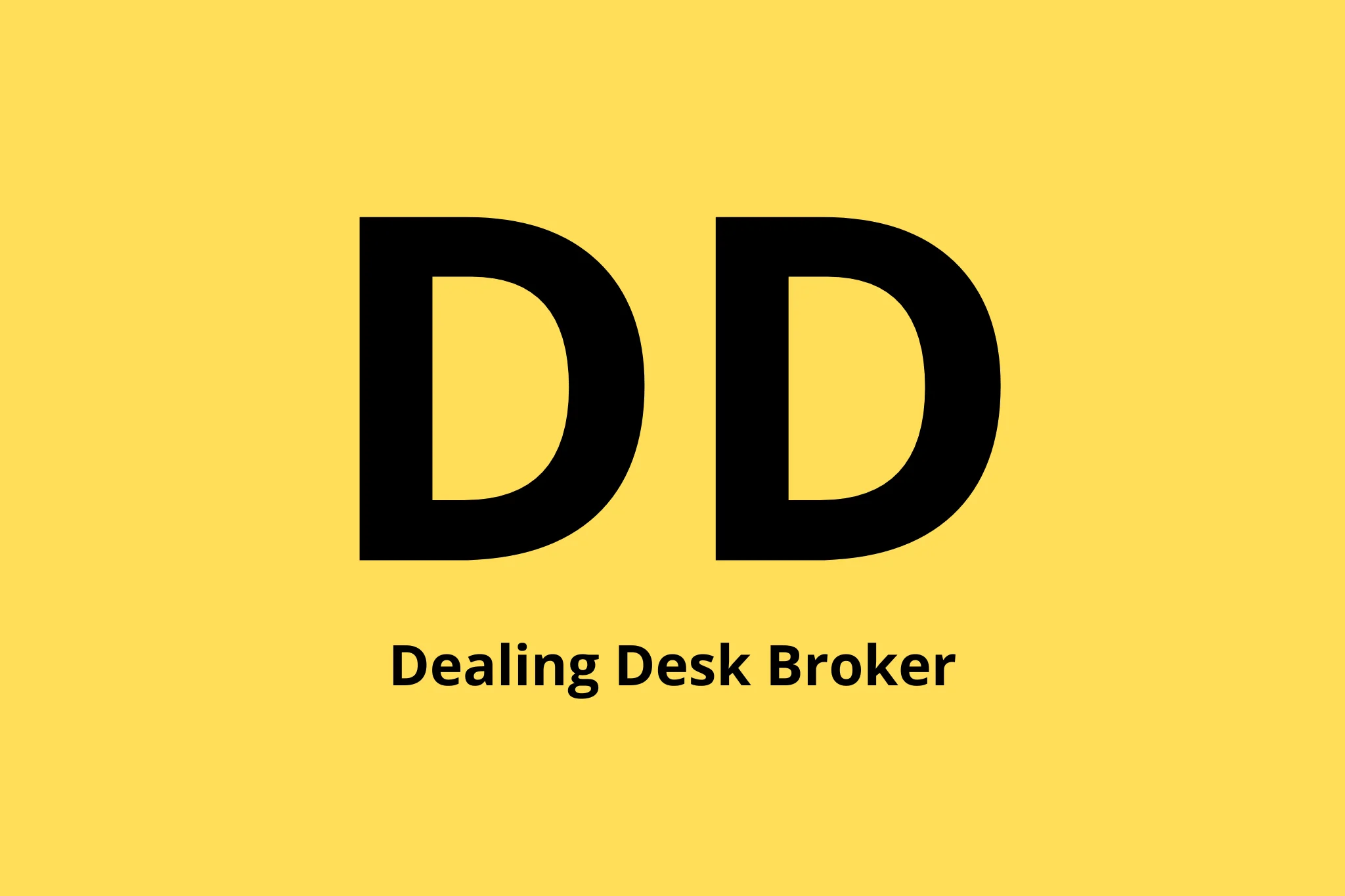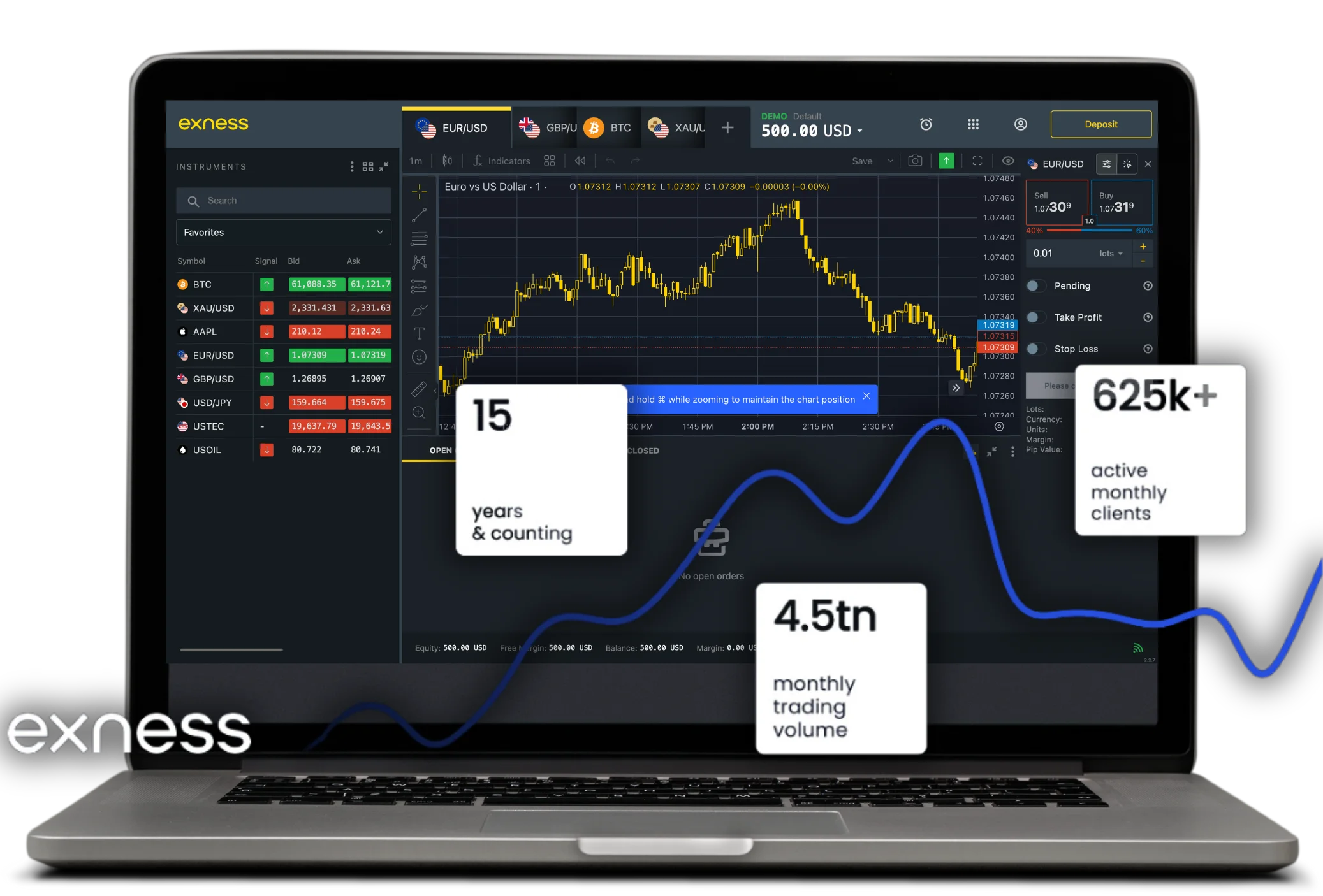Is Exness a Dealing Desk (NDD) Broker?
Exness is mostly considered an NDD (No Dealing Desk) broker. This means it doesn’t handle your trades directly. Instead, it sends your orders to other companies, called liquidity providers, who match your trade. So, your trade goes straight to the market without interference from Exness. To know if Exness is truly an NDD broker, let’s look at how it works compared to a DD broker.
Definition of “Dealing Desk Broker”
DD – A Dealing Desk Broker refers to a broker who controls your trades. Whenever you trade, the broker is on the other side of your trade. If you buy, they sell, and if you sell, they buy, for example. They determine the price at which your trade is executed.

DD brokers earn profits on the difference between the buy and sell price — known as the spread. They usually don’t send your trade to other markets but handle everything themselves.
So, a dealing desk broker creates its own market for your trades. They may offer fixed spreads but can be less transparent about how trades are handled. This is different from an NDD broker, who sends your trades straight to the market.
Principles of NDD Brokers vs. DD Brokers
The main difference between NDD brokers and DD brokers is how they handle your trades.
NDD Brokers:
- Variable Spreads: The spread, or difference between the buy and sell price, can change depending on market conditions.
- Direct Access to the Market: When you place a trade with an NDD broker, your order goes directly to the market or to liquidity providers (like banks). The broker doesn’t get involved in your trade.
- Fair Pricing: Since NDD brokers don’t control the prices, you usually get prices that match what’s happening in the market.
- No Conflict of Interest: NDD brokers don’t take the other side of your trade, so they don’t make money from your losses. They make money through small commissions or a small markup on the price.
DD Brokers:
- Market Makers: Broker DD is on the other side of your trade. You buy, they sell, you sell, they buy.
- Fixed Spreads: They usually provide fixed spreads, so the buy and sell prices aren’t really changing.
- Conflict of Interest: Some DD brokers could profit from your losses, creating a conflict of interest.
- Less Transparency: DD brokers often don’t show exactly how or where your orders are executed, which means you may not know the exact price you’ll get when you place a trade.
Analysis of Exness Order Execution Practices
Exness is an NDD broker, which means it doesn’t control your trades. Instead, Exness sends your orders directly to the market. This ensures that your orders are handled quickly and fairly.
Exness uses two main types of order execution: STP (Straight Through Processing) and ECN (Electronic Communication Network). Both types send your order directly to the market, but there are small differences. Here’s a simple table with key details:
| Metric | Exness (STP) | Exness (ECN) |
| Execution Speed | 0.1 – 0.5 sec | 0.1 – 0.3 sec |
| Minimum Order Size | 0.01 lot | 0.01 lot |
| Slippage | Low | Very Low |
| Spread Type | Variable | Variable |
| Liquidity Providers | Multiple | Multiple |
Key Points:
- Order execution speed: ForexTradeExsensite can execute your order fast, usually less than 1 second.
- Slippage: You will have very little slippage with Exness, this means the price you see is the price you get.
- Liquid Providers: Exness has many liquid providers to facilitate trading with fast order execution and reasonable pricing.
In short, Exness provides fast and transparent order execution. Compared to DD brokers, Exness sends your trades straight to the market, which helps reduce delays and slippage.
Does Exness Meet the Transparency Standards of an NDD Broker?
Exness follows the transparency standards of an NDD broker. This means they send your orders straight to the market without changing the prices. You get the real market price when you trade.
Exness also tells you clearly how they handle your orders. You can see how fast your trades are processed and what spread you will pay. However, because Exness offers floating spreads, they can widen during market events or high liquidity.

Advantages and Disadvantages of Trading with an NDD Broker
Advantages:
- Direct Market Access: Your trades go directly to the market, without the broker getting in the way.
- Fair Pricing: You get prices that match what’s happening in the market, with no changes from the broker.
- No Conflict of Interest: The broker doesn’t take the opposite side of your trade. They don’t profit from your losses.
- Transparency: Exness shows you exactly how your orders are handled, so you know what to expect.
Disadvantages:
- Variable Spreads: The spread (the gap between the buy and sell prices) can also fluctuate, most notably during peak-market periods. That can add cost to trading.
- Potential Delay: There may be slight delay when the market is very busy executing orders.
- Slippage: The price at which you place an order is not always the price at which you execute an order, particularly in high-traffic times.
Exness offers reasonable pricing and transparency, to sum up. However, as an NDD broker, you may still experience changes in spreads and slippage at busy market times.
Frequently Asked Questions (FAQ)
What is a Dealing Desk (DD) broker?
A Dealing Desk (DD) broker is a broker who executes your trades internally. When you place an order, the broker can assume the other side of your transaction. If you buy, say, they may sell you. DD brokers set their own prices, making money from the spread between buy and sell prices.
What is an NDD broker, and how does it differ from a DD broker?
The NDD Broker (No Dealing Desk) passes your order to the market with a price you will not be altered. They won’t take the other side of your trade. This differs from a DD broker, which may set the price and be on the other side of your trade. DD brokers set their own prices (i.e. less favorable than the market) whereas NDD brokers use real market quotes.
How does Exness execute client orders?
Exness sends client orders directly to the market through two methods: STP (Straight Through Processing) and ECN (Electronic Communication Network). These methods make sure your order goes to banks or liquidity providers without interference. Exness aims to execute your trades quickly and at fair prices.
Is Exness considered a true NDD broker?
Yes, Exness is a true NDD broker. This means they don’t take the opposite side of your trade. They send your order directly to the market. Exness is clear about how they execute trades and shows you real-time pricing. While they use variable spreads, this is common for NDD brokers.
You may also be interested in:
